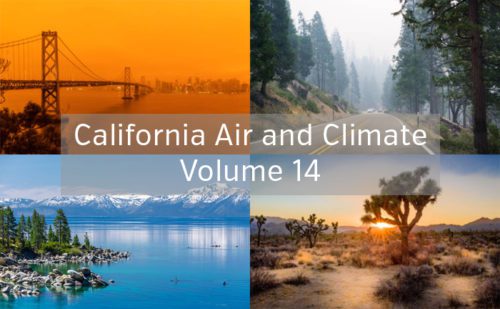California Air and Climate: CARB to Hold Public Workshop on Reducing Greenhouse Gas Emissions from Transportation Vehicle Services; Updates to Air Toxics “Hot Spot” Regulations
May 2020
California Air and Climate, Vol. 14
CARB to Hold Public Workshop on Clean Miles Standard to Reduce Greenhouse Gas Emissions from Transportation Vehicle Services
Consistent with a recent trend of actions and publicly held workshops aimed at reducing greenhouse gas emissions (GHG) from a variety of sources throughout California (e.g., locomotives, ocean vessels, commercial harbor craft, zero-emission trucks), on May 15, 2020, the California Air Resources Board (CARB) will hold a public workshop regarding CARB’s development of the Clean Miles Standard, which aims to reduce GHG emissions from transportation network company (TNC) services pursuant to CARB’s requirement to implement SB 1014 (2018). TNCs provide prearranged transportation services for compensation by connecting passengers to drivers through online-enabled applications or platforms (e.g., Uber, Lyft and other ride-sharing platforms). According to CARB, the transportation sector accounts for almost 50 percent of GHG emissions in California when accounting for fuel production, with light-duty vehicles making up 70 percent of the transportation sector’s direct emissions. Under the Clean Miles program, CARB hopes to encourage the use of zero-emission vehicles and vehicle miles traveled (VMT) reduction strategies, as well as account for automated vehicles in TNCs. At the May 15 workshop, CARB staff intends to discuss assumptions used in electric vehicle miles traveled (eVMT) cost modeling, preliminary eVMT targets, progress developing GHG targets for TNCs, potential requirements for smaller TNCs, compliance and reporting requirements, as well as a request for alternatives to the proposed regulation targets. For additional information, please click here.
CARB to Update its Air Toxics “Hot Spots” Regulations
On April 30, 2020, CARB held a public workshop to discuss proposed changes to its AB 2588 Air Toxics “Hot Spots” regulations. Under the “Hot Spots” program, CARB and the state’s Air Districts compile air toxic emissions data reported by stationary sources, assess health risks from these facilities to surrounding residents, and require the sources to reduce risks below protective thresholds. CARB is proposing changes to its guidelines including adding 900 new substances; lowering risk screening thresholds; and updating methods for facilities to calculate or estimate emissions of these substances and determine risk. Notably, CARB is proposing to add fugitive emission measurement requirements for facilities in several waste and recycling sectors, including wastewater, landfills, and scrap metal.
CARB is accepting comments on items presented during the workshop until May 21, 2020. CARB plans to formally propose and adopt regulatory changes by the end of 2020. For additional information, please click here.

